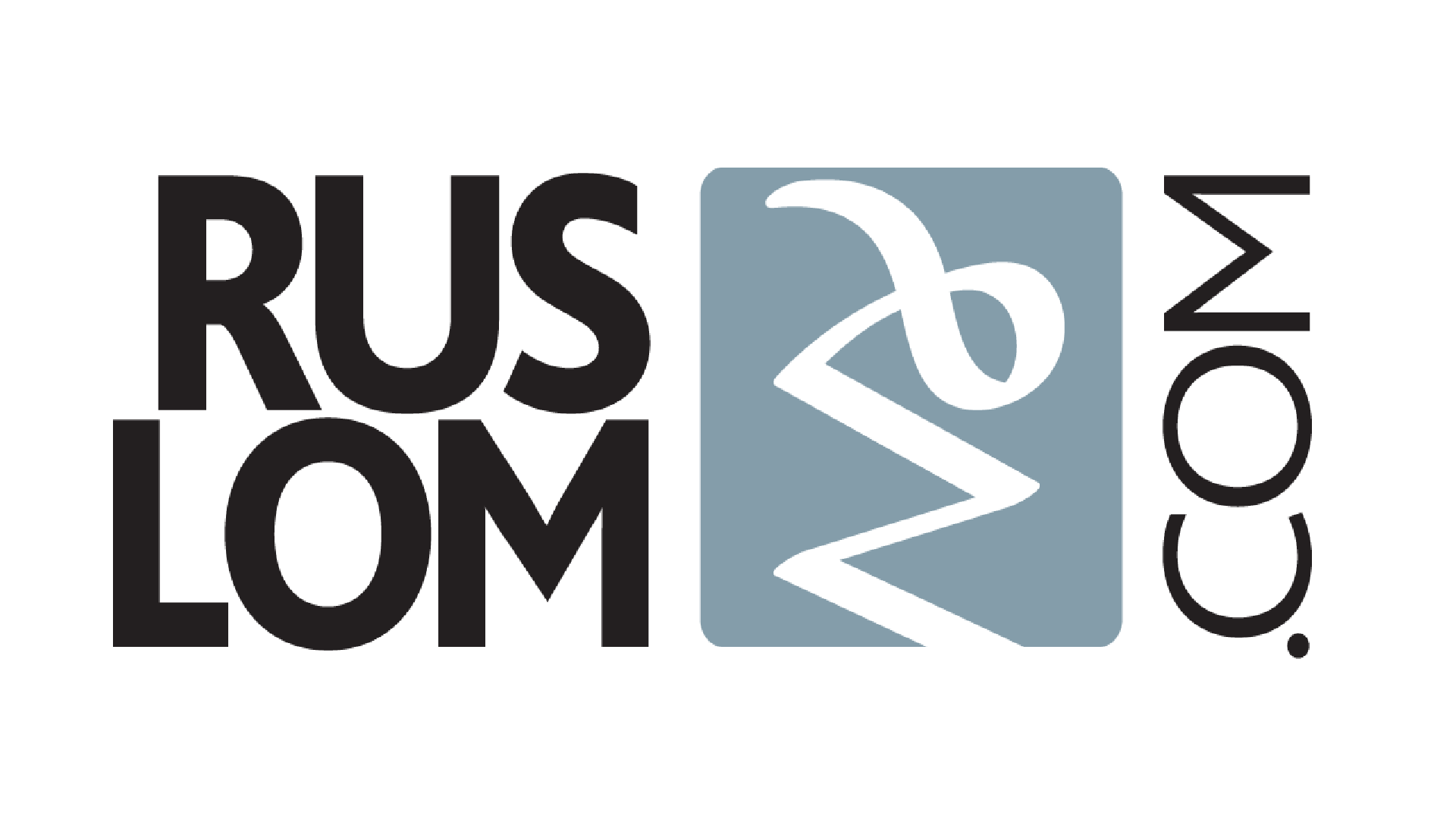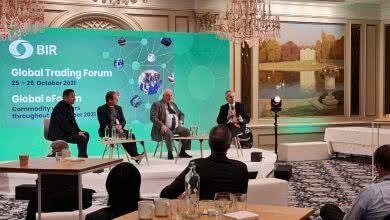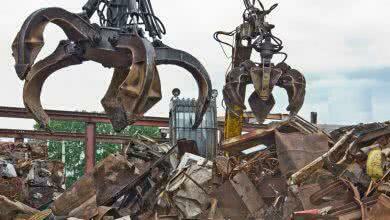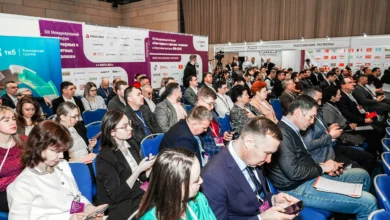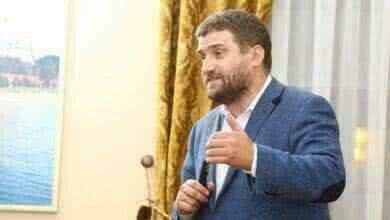The National Recycling Association RUSLOM.COM continues to publish its regular newsletter for international partners, containing valuable proprietary information on the Russian metals and scrap markets: RUSLOM.COM self-regulatory news and updates; the national metal scrap processing industry stories; as well as the latest Rusmet Rating Agency market indices. We welcome your feedback and communication, based on the above newsletter.
Index
RUSLOM.COM NEWS: ANNOUNCEMENTS AND POST-RELEASES. 2
RUSSIAN SCRAP PROCESSING INDUSTRY NEWS. 4
Scrap loading by rail fell sharply in January-March 2024. 4
RT-Invest successfully recycles metal scrap. 4
RUSMET RATING AGENCY INDICES. 5
Sharp increase in Russian aluminium shipments to EU.. 6
Magnitogorsk Iron & Steel Works takes actions for nature conservation. 7
Amursky Metallurgical Plant project 8
New breakthrough in copper-zinc ore enrichment 8
MACROECONOMIC NEWS OF RUSSIA.. 9
Primorsky Krai prepares to strengthen its position in shipbuilding industry. 9
More than 50% of municipal solid waste in Russia is now sorted. 10
Russia ranks among top countries in terms of WEEE generation in European region. 10
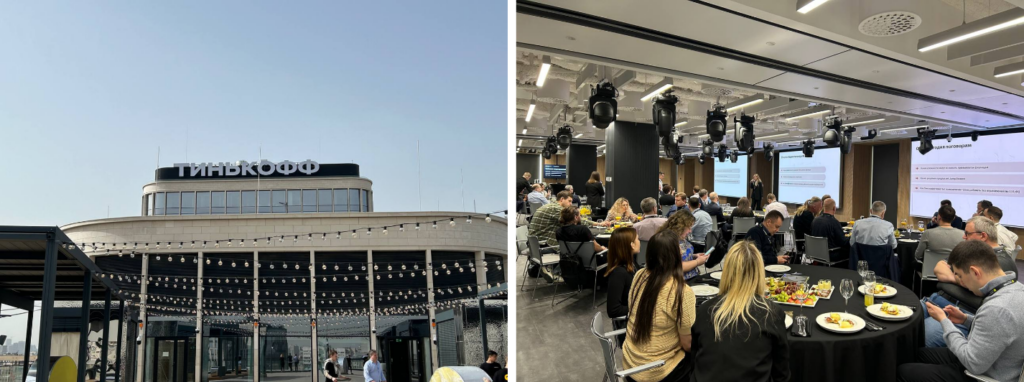
RUSLOM.COM NEWS: ANNOUNCEMENTS AND POST-RELEASES
Viktor Kovshevny, Director of National Recycling Association RUSLOM.COM, speaks on copper and aluminium markets in Forum Hall of Cabex exhibition in Moscow
The speaker noted that the country’s copper metal stock exceeds 25 million tonnes, with annual scrap production at 735,000 tonnes.
Despite a solid raw material base, the copper market in the country is experiencing difficulties. In particular, the impact of shadow VAT schemes distorts the price of copper scrap and metal products.
The State Duma is working on extending the agency VAT to semi-finished products and products made of copper, aluminium, and lead.
The speaker reported that there is a significant potential for import substitution in the copper scrap market if the issues with prices are solved and processing capacities are developed.
There are also issues in the collection of aluminium scrap. There are no sites that collect scrap aluminium exclusively. Aluminium scrap is collected only together with ferrous scrap by independent scrap market players. Now this category of entrepreneurs has become more vulnerable compared to the subsidiaries of steel mills, so there are risks for the involvement of non-ferrous scrap groups as well.
Involvement of aluminium scrap may be facilitated by the growing domestic consumption of such secondary raw materials. For example, Rusal started to enter this market in 2023. In addition, the industry community is preparing proposals to the Government of the Russian Federation on reforming the recycling of ELVs.
National Recycling Association RUSLOM.COM takes part in event for scrap metal collectors organised by Tinkoff
The business breakfast programme began with a welcome coffee, followed by a tour of Tinkoff’s headquarters.
The digital bank’s new office is characterised by its care for employees and partners, who have access not only to work areas, but also to a free canteen, fitness, lounges, and even a rooftop ice rink in winter and a terrace in summer.
During the tour, it was noted that Tinkoff now serves 41 million customers, with more than a thousand scrap dealers. Their number has increased eightfold since the introduction of cashless payments for scrap on 1 October 2023. The target set at the bank’s headquarters is to reach 50 million customers in the short term.
This was followed by networking with a business breakfast and speaker presentations.
What was discussed at the meeting?
- What issues will arise for scrap collectors after the transition to cashless settlements with individuals?
- How Tinkoff and Jump.Finance are helping clients to solve these problems
- About checks and limits. How the bank changed its methodology to allow metal workers to work without unreasonable restrictions
- Cases and success stories of such companies as Akron Holding and Yug-Met Industrial Technopark working with Tinkoff.

RUSSIAN SCRAP PROCESSING INDUSTRY NEWS
Scrap loading by rail fell sharply in January-March 2024
The volume of loading by rail in the first quarter of 2024 decreased by 3.1% YoY to 295.9 million tonnes. This was reported by the press service of the Russian Railways.
The largest decrease in January-March of this year was recorded in the loading of ferrous metal scrap (by 19.5% to 2 million tonnes) and building materials (by 17.3% to 25.6 million tonnes). Loading of non-ferrous ores and sulphur raw materials decreased by 6.5% to 4.1 million tonnes, iron and manganese ores – by 5.7% to 26.5 million tonnes, hard coal – by 5.4% to 86.8 million tonnes, ferrous metals – by 4.4% to 15.9 million tonnes, oil and oil products – by 1.7% to 53.3 million tonnes, chemicals and soda – by 0.8% to 5.4 million tonnes.
RT-Invest successfully recycles metal scrap
RT-Invest company has successfully recycled 19 thousand tonnes of ferrous metal scrap in two years.
In addition, 6 thousand tonnes of non-ferrous metals, mainly aluminium, were sent for recycling during the two years. The maximum volume of shipments was reached in January 2024 – 500 tonnes. Recyclers in the Moscow, Leningrad, Kaluga, and Nizhny Novgorod regions use this metal to produce various goods.
The recycling of metal waste is important for reducing environmental damage, and metal recycling helps to conserve natural resources and reduce the risk of their depletion.

RUSMET RATING AGENCY INDICES

The Weekly Rusmet Index for Steel Scrap 3A FCA Russia domestic on 13th week 2024 (25-31 Mar) settled at 26 500 RUB/mt (ex VAT). The Index increased by 50 RUB/mt (0,2%) compared to previous week.
For 13th week 2024 (25-31 Mar) Rusmet Billet Index FOB Black Sea settled at 46 350 RUB/mt, Rusmet HRC FOB Black Sea Index settled at 52 271 RUB/mt (up 0,2%), Rusmet CRC FOB Black Sea Index settled at 65 685 RUB/mt (up 0,2%), Rusmet Rebar FOB Black Sea Index settled at 48 570 RUB/mt (up 1,2%).
Rusmet Coal FOB Australia (62% CSR) Index compared to previous week decreased by $6 (3,0%) to 207$/mt, Index for Coal FOB Australia (70% CSR) compared to previous week decreased by $10 (3,8%) and is equal to 245$/mt.

METALLURGY NEWS OF RUSSIA
Sharp increase in Russian aluminium shipments to EU
There has been a significant increase in Russian raw aluminium shipments to the European Union in early 2024. Data provided by the European Statistics Office (Eurostat) and published in the Vedomosti newspaper show a sharp increase in export volumes by 66% on month, reaching 26,253 tonnes. In monetary terms, the increase was 63%, reaching 59.3 million euros. It is worth noting that in the previous month, shipments fell by 48% in volume and more than doubled in value.
The most significant increase in imports was recorded in Spain, where shipments more than quadrupled to 4.11 thousand tonnes. Austria and France also recorded significant increases of 1.4 and 5.3 thousand tonnes respectively. This sudden increase in demand has been attributed to fears of a possible ban on Russian aluminium supplies. In light of previous bans by the EU and other countries such as the UK and the US, analysts and experts are concerned about the consequences of a potential rejection of Russian metal.
If the EU decides to reject Russian metal altogether, European and US buyers will have to find alternative sources, which could lead to increased competition for metal supplies from the Middle East.
Gold of Russia
At the beginning of 2024, gold mining companies continue to show strong results. Production of the precious metal in the Chukotka Autonomous District remains one of the most significant in the world.
Since the beginning of this year, gold mining companies in the Chukotka District have extracted 2.94 tonnes of this precious metal. Basic Metals JSC provides 62% of the total gold production in the region. Karalveem Rudnik and ZK Mayskoye LLC also contributed to the total gold output, producing 219.5 kg and 595.13 kg respectively.
According to the region’s Ministry of Industrial Policy, last year’s silver production in the district increased by 8% to 16.15 tonnes. In addition, an increase in fossil fuel production was recorded.
Russia mines more than 300 tonnes of precious metal per year. According to the Ministry of Natural Resources, the country’s proven gold reserves amount to 15.5 thousand tonnes.
In 2022, demand for gold reached an 11-year high. Central banks purchased 1,136 tonnes, the highest in 55 years. According to the World Gold Council, Russia holds the fourth place in gold reserves.
Magnitogorsk Iron & Steel Works takes actions for nature conservation
Magnitogorsk Iron & Steel Works (MMK) continues to actively develop its environmental protection activities, having allocated more than 19 billion roubles for this purpose last year. Of this amount, 15 billion roubles were allocated for capital construction of environmental protection facilities.
During the year, 46 projects to reduce and prevent negative environmental impact were implemented, and another 16 are in the process of implementation.
Specific emissions of pollutants into the atmosphere were decreased by 9.3%, and specific discharges of pollutants into water bodies were decreased by 19%. About 1.7 million tonnes of production waste were used in sinter charge as secondary material resources, and 9.6 million tonnes of current and waste slag were recycled at specialised plants.
One of the major projects within MMK’s environmental protection activities is the modernisation of coke and chemical production. Construction of a new coke battery complex (No. 12) and reconstruction of the biochemical unit and the chemical products recovery and processing shop are currently underway. The launch of the new battery will make it possible to decommission outdated facilities and reduce gross emissions of pollutants into the atmosphere by 11.35 thousand tonnes per year.
MMK has also developed and is successfully implementing a long-term Environmental Programme covering all production processes and based on the application of the best available technologies. This programme makes it possible to reduce environmental impact and ensure environmental safety of all technological processes at the Works.
Amursky Metallurgical Plant project
Seligdar Mining Holding announced its plans to implement a project to build the Amursky Metallurgical Plant, which will specialise in the production of refined tin. The capacity of the plant will be 5.5 thousand tonnes per year, and capital investments are estimated at RUB 8.6 billion.
Despite the prospects, the project is not without risks. Tin production in the world has decreased, and competition in the market remains high. This may significantly affect the project payback period and Seligdar’s financial position.
New breakthrough in copper-zinc ore enrichment
Russian chemists have made a significant step forward in the enrichment of copper-zinc ores by presenting an innovative method that can extract up to 92.6 percent of copper minerals and about 37.2 percent of zinc minerals from complex ore compositions.
The optimal extraction of copper and zinc minerals, according to the researcher from the National University of Science and Technology (MISiS), is achieved by applying iron sulphate and sodium sulphide during the flotation treatment of the ore. This method has been successfully used to treat ores from Russia and Myanmar, where high levels of sulphur compounds complicate the enrichment process.
The process involves crushing the ore and treating it with special substances that bring the valuable components to the surface, increasing the metal content of the ore and reducing the cost of extraction.
Researchers in Russia have proposed an approach to treating sulphide ores that avoids much of the mineral being deposited at the bottom of the plant during flotation. Using a mixture of two reagents – iron sulphate and sodium sulphide – makes the process more efficient and convenient.

MACROECONOMIC NEWS OF RUSSIA
Primorsky Krai prepares to strengthen its position in shipbuilding industry
The Primorsky Krai is to create an industrial cluster specialising in shipbuilding and ship repair, involving nine local companies. The interested companies include SSC Zvezda, Shipbuilding and Composites, Dalzavod, Slavyansky Shipyard, Primorsky Metallurgical Plant, VRK Sapphire, Varyag Shipyard, Dalpribor and Briz PAMP.
Joining the cluster will allow these organisations to improve their production processes and implement joint initiatives. In addition, they will be able to take advantage of government support, such as preferential loans, reduced insurance premiums, tax and customs exemptions, and subsidies to offset part of the costs of joint projects.
This will help create favourable conditions for the development of the shipbuilding industry in the region and strengthen its industrial potential, according to specialists from the Primorsky Krai Development Corporation.
More than 50% of municipal solid waste in Russia is now sorted
This was announced on 26 March by the head of the Ministry of Natural Resources, Alexander Kozlov, at a meeting of the State Duma Committee on Ecology, Natural Resources and Environmental Protection.
The minister noted that over the past four years, 250 infrastructure facilities for the treatment, recycling and disposal of solid municipal waste have been built. “Based on last year’s results, more than half of the waste is sorted,” he added.
Russia ranks among top countries in terms of WEEE generation in European region
According to a new report by The Global E-waste Monitor 2024, Russia ranks among the top countries in terms of WEEE generation in the European region.
The list of countries with the highest level of e-waste generation in the European part (in million kg) includes:
- Russian Federation-1,900
- Germany-1,800
- United Kingdom of Great Britain and Northern Ireland-1,700
- France-1,400
- Italy-1,100
At the same time, in terms of WEEE generation per capita (in kg) the leaders are:
- Norway-27
- United Kingdom of Great Britain and Northern Ireland-24
- Switzerland-23
- France-22
- Iceland -22
CONTACT:
Alexey Kondratyev Director, Public Relations National Recycling Association RUSLOM.COM Address: 119017 Bolshaya Ordynka st., 50 b.1, Moscow, Russian Federation Phone/fax: +7 (499) 490-49-28 Mobile: +7 (903) 363-53-93 E-mail: a.kondratiev@ruslom.com
